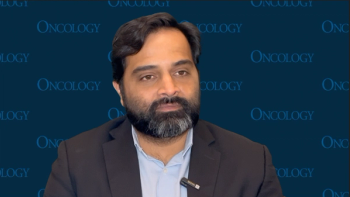
More follow-up data will better elucidate the impact of frontline use of hypomethylating agents in patients with myelodysplastic syndromes.

Your AI-Trained Oncology Knowledge Connection!


More follow-up data will better elucidate the impact of frontline use of hypomethylating agents in patients with myelodysplastic syndromes.

A phase 1/2 trial assessed the use of menin inhibitor DSP-5336 in patients with acute leukemia overexpressing HOXA9 and MEIS1.
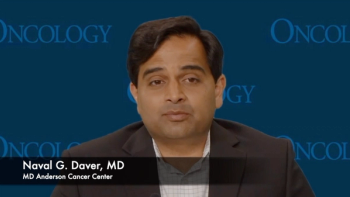
Luspatercept, which is now FDA approved for myelodysplastic syndromes, may help patients achieve transfusion independence.
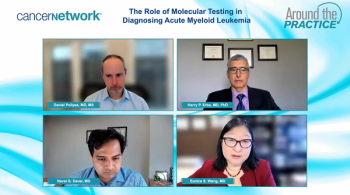
Experts on acute myeloid leukemia offer closing thoughts and discuss emerging treatments in the field.

The expert panel provide clinical insights on which patients with AML may benefit the most from treatment with menin inhibitors.

The panel of experts share their thoughts on where menin inhibitors will offer the most benefit in the overall treatment regimen for patients with AML.

The expert panel discuss emerging data on menin inhibitors in the second-line treatment of AML, including an overview of the KOMET-001 trial evaluating ziftomenib.

Experts on acute myeloid leukemia share clinical insights on first-line combination therapies, including the potential role of menin inhibitors in this setting.

The expert panel review recently reported data from clinical trials evaluating menin inhibitors, including ziftomenib and revumenib, in the treatment of relapsed AML and how these treatments may fit into first-line settings.

Daniel Pollyea, MD, MS, discusses first-line treatment options for patients with AML with KMT2a rearrangements.

Eunice S. Wang, MD, shares first-line treatment approaches for patients with NPM1-mutant AML, discussing current clinical data.

The panel discuss the need for personalized treatment approaches for young, fit patients with newly diagnosed acute myeloid leukemia, as well as when transplant should be considered.

Daniel Pollyea, MD, MS, discusses how he assesses patients with newly diagnosed acute myeloid leukemia for the best first-line therapy, including the role of intensive induction chemotherapy.

Eunice S. Wang, MD, offers an overview of common barriers to performing molecular testing in community practices, including uncertainty about which tests to perform and the wait times for results.

Harry P. Erba, MD, PhD, discusses the need to retest for mutations including IDH1, IDH2, FLT3, NPMI, and KMT2A rearrangement for patients with relapsed or refractory acute myeloid leukemia.

A panel of clinical experts provide insights about the importance of molecular and cytogenetic testing in diagnosing acute myeloid leukemia and in determining the best treatment plan.
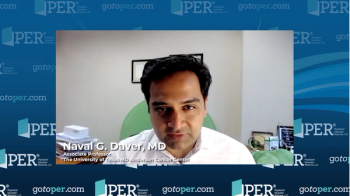
Program chair Navel Daver, MD, invites you to PER®’s complimentary in-person and virtual satellite symposium.
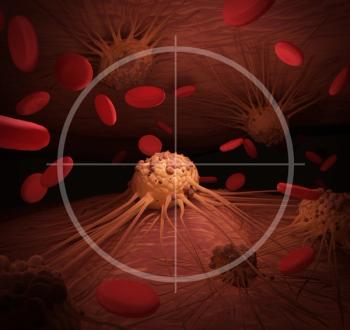
The leukemia expert offered an overview of agents approved by the FDA this year.
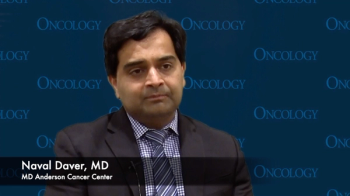
Naval Daver, MD, explains the progress made on 3 abstracts he’s involved with regarding acute myeloid leukemia (AML) at the ASH Annual Meeting and Exposition.

Dr. Daver discusses immunotherapy approaches for patients with acute myeloid leukemia (AML), and his recent study results on the combination of azacitidine and nivolumab.

Cancer Network sat down with Dr. Naval Daver to discuss advancements and discoveries in immunotherapy for AML patients.
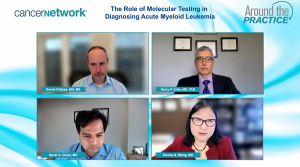
Published: August 3rd 2023 | Updated:

Published: July 6th 2023 | Updated:

Published: July 20th 2023 | Updated:
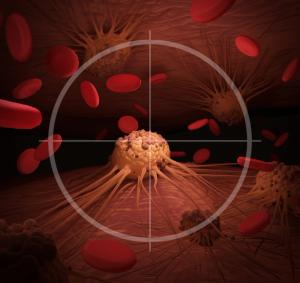
Published: December 25th 2020 | Updated:

Published: August 3rd 2023 | Updated:

Published: July 20th 2023 | Updated: